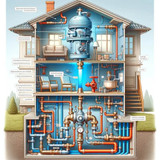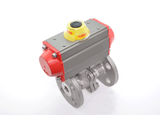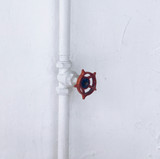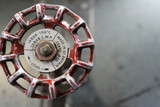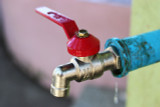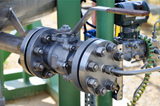Brass Ball Valves
Brass ball valves are used in various applications due to their strength, durability and corrosion resistance. You’ll see these valves in many industries, including manufacturing, mining, water processing, plumbing and HVAC. Our extensive range of brass ball valves will satisfy your isolation valve-related needs.
Why Buy a Brass Ball Valve?

When you buy a ball valve made of brass, you’re getting a range of advantages. For one thing, brass is a corrosion-resistant material. As a result, brass valves can be used in many applications, including harsh environments. Remember to check material compatibility with your process fluid, before purchasing any valve!
Another advantage to brass ball valves is that they’re simple to install and use. Unlike some other types of valves, you can quickly and easily install your brass ball valves with a leak tight seal, using products available at most hardware stores.
You can also choose between leaded and unleaded brass. So, irrespective of whether you’re using the valve for drinking water or wastewater, there’s an option suitable for your application.
Purchasing Brass Ball Valves: Common Applications
Before buying a brass ball valve from a manufacturer or supply store, you should know where people typically use these valves.
Brass ball valves are ideal for a range of applications, but there are certain circumstances where alternative materials or valve types would be better suited. For example, while brass displays corrosion resistance in potable water, it has no resistance to high-saline environments. If you use your brass valve for saltwater, it will corrode very quickly.
However, it’s a perfect fit for many other uses, including the following:
- HVAC applications
- Potable water
- Water wells
- Commercial plumbing
- Residential plumbing
However, if people or animals are going to drink the water in the system, ensure that you use a lead-free brass ball valve. Lead is a potent and potentially lethal toxin that should only be used in valves for non-potable applications.
What is the Difference Between Bronze and Brass Ball Valves?

Bronze and brass are two similar but distinct alloys that people often confuse. While you can purchase valves consisting of both materials, brass ball valves are by far the more common type.
Bronze is an alloy of copper and tin, while brass is an alloy of copper and zinc. Both may contain metallic additives in small quantities, with bronze commonly containing magnesium, nickel, aluminum, and even lead.
Bronze valves have most of the attributes of copper as an alloy, including excellent corrosion resistance. They’re also incredibly ductile and can be more affordable than brass valves.
On the other hand, bronze tends to be a much rougher metal than brass and won’t give you that same polished appearance. It can also be rather porous, and the lead content of the metal may be high in some instances.
Brass ball valves, while being similar, are generally better in terms of both durability and performance. They have superior corrosion resistance (when compared to bronze) and little to no lead content in many cases, while still remaining malleable and durable.
The downside to brass valves is that they’re generally more expensive than bronze valves. Considering how much longer they last, this is hardly a deal-breaker. The other downside is that brass may undergo dezincification when exposed to high chlorine levels.
If you need more information, check out this handy guide when choosing between brass and bronze valves.
How to Select a Brass Ball Valve: Purchase Guidelines
When you’re trying to select a brass ball valve, the variety of options can make a selection seem bewildering.
To help you decide which brass ball valve to choose, we’ve compiled a list of criteria to consider before making a purchase.
- Consider the size of the required valve. For example, if you have a two-inch system, you will require a two-inch brass ball valve. This is one of the most essential elements in the valve selection process.
- Consider the corrosivity of the liquid you’re transporting. If the liquid is highly corrosive, especially in terms of saltwater or chlorinated water, then neither brass or bronze ball valves are a good choice.
- What type of connection does your system require? There are many types of valve connections, and it’s essential to determine which connections your system uses before making a purchase.
- Consider the temperature and pressure ratings required for your system. Check the temperature and pressure ratings for different types of brass ball valves before selecting one with the right capabilities.
If you consider these four things before buying a brass ball valve, you’re likely to make the right selection.
Why Choose ValveMan as Your Brass Ball Valve Store?
ValveMan is the ideal place to buy your next set of brass ball valves. With our wealth of practical, hands-on experience, we can easily help you find the valve that will best suit your application.
Whether you’re trying to figure out how to choose the right valve, looking for input about preventing backflow, or simply trying to purchase a brass ball valve for your next application, ValveMan has everything you need.
Resources
Ball Valve: What Is It? How Does It Work? Types Of, Uses - IQS Directory - Accessed 27/05/2024
Benefits of Brass Ball Valves - BoshartU - Accessed 27/05/2024
Brass vs. Stainless Steel Ball Valves: Which Is Better? - Gemini Valve Blog - Accessed 27/05/2024
Our Posts
View AllTypes of Valves in Plumbing
Have you ever wondered what goes into managing the flow of water in your home, or through a building …
Read MoreIntroducing Apollo Valves
Apollo Valves® inventory includes a wide range of valve products supplied to diverse markets. Th …
Read MoreUnderstanding Valve Sizes and Measurement
Sizing the appropriate valve is critical to ensuring the performance of your system. Whether you'r …
Read MoreTypes of Water Valves
Hey there, fellow valve enthusiasts! We all know that valves play a crucial role in regulating th …
Read MoreWhat is a Backflow Preventer, and How Does it Work?
When a simple check valve is inadequate for the job, you need a backflow preventer. But knowing …
Read MoreValve inspection - main points of valve testing in Manufacture setting
Industrial facilities rely on different types of valves (such as check valves, for example) to con …
Read MoreTypes of Ball Valves
Ball valves are important components in a vast range of systems, from small family-owned workshops …
Read MoreUnderstanding valve standards and specifications
Hey there, fellow valve enthusiasts! Today, we're looking at valve codes, standards and specifica …
Read MoreHow to Tell if a Valve is On or Off
We have all been there before. You are staring at a valve; you know that you should know if it …
Read MoreUnderstanding Different Types of Valve Connections and Fittings
Hey there, fellow valve enthusiasts! We know valves play a crucial role in regulating the flow of li …
Read MoreTypes of Valve Handles: Lever and Handwheels
Whether you're involved in industrial work, plumbing, or you're a DIY enthusiast, you come across va …
Read MoreThe Basic Parts of a Valve
Valves quietly work in many different areas, even places you wouldn't expect. They're truly every …
Read MoreGas Ball Valves In Industrial Applications - 5 Things to Keep in Mind
Unlike the standard ball valves, most gas ball valves are tested and approved by CSA. These valves a …
Read MoreHow To Correctly Use A 3 Way Valve In Different Applications
To understand the "T"-port and an "L"-port 3-way valves and what makes them different, it's importan …
Read MoreIndustrial Ball Valves - 9 Questions To Make The Right Choice
Ball valves are versatile flow control devices suitable for extensive industrial applications. They …
Read MoreEverything you need to know about valve types
Valves play crucial roles in production lines and equipment performance across a multitude of ind …
Read MoreWhat is a Duty Cycle and How Does it Relate to Electric Ball Valves?
Electric actuation improves the efficiency of processes by maintaining the accuracy of the re …
Read MoreActuated Butterfly Valves 101: All You Need To Know About Their Application In Piping Systems
Butterfly valves are quarter-turn flow control or isolation devices, used for quick shut-off in p …
Read MorePractical Guide To Electric and Pneumatic Actuators – Which One To Choose?
While electrical and pneumatic actuators have several unique benefits and are preferred in differ …
Read MoreHow Do Check Valves Affect Water Pressure in the Piping System?
Check valves also known as "one-way" valves are autonomously operated unidirectional valves that all …
Read More



